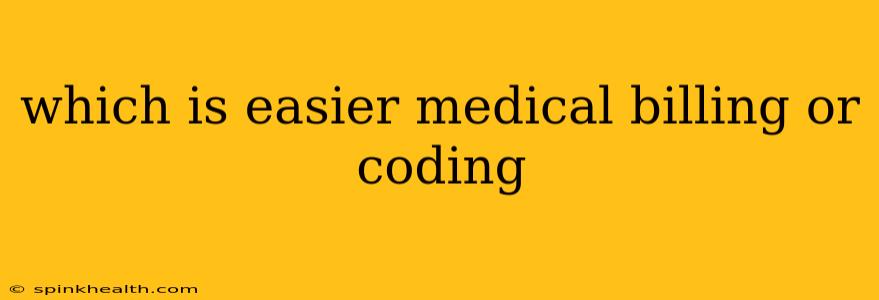The Great Medical Billing vs. Coding Debate: Which is Easier?
The age-old question for aspiring healthcare professionals: is medical billing or coding easier? The truth is, there's no simple answer. It's like asking if painting landscapes or portraits is easier – it depends entirely on your individual skills and preferences. Both roles are crucial to the healthcare system's financial health, but they require distinct skill sets and approaches.
Let's delve into the specifics of each role and explore what makes one easier (or harder) for different people.
What is Medical Coding?
Imagine yourself as a translator, converting doctor's notes, procedures, and diagnoses into a universal language of medical codes. That's the essence of medical coding. Coders use standardized coding systems like ICD-10-CM (for diagnoses) and CPT (for procedures) to create precise numerical codes that insurance companies understand. Think of it as a meticulous puzzle – each piece (code) must fit perfectly to accurately reflect the patient's medical record.
Accuracy is paramount; a single wrong code can lead to denied claims and financial losses for the healthcare provider. The job demands strong attention to detail, analytical skills, and a deep understanding of medical terminology. Many coders find satisfaction in the precision and problem-solving aspects of the work.
What is Medical Billing?
Medical billing is all about the money – ensuring healthcare providers get paid for their services. Billers are the financial managers of a medical practice. They create and submit claims to insurance companies, follow up on payments, handle denials, and manage patient accounts. They act as the intermediary between the healthcare provider and the insurance company, navigating complex regulations and payment processes.
This job requires strong organizational skills, proficiency in billing software, and a knack for communication, especially when dealing with insurance companies and patients regarding outstanding balances. Billers often deal with a high volume of work and need to be adept at managing multiple tasks simultaneously.
Which is Easier to Learn?
This is subjective. Some individuals find the detailed, analytical nature of medical coding more straightforward, while others prefer the more dynamic, interpersonal aspects of medical billing. Both require dedicated study and training, and the "easier" path depends on your learning style and strengths.
What are the typical job duties of a medical biller?
Medical billers handle the entire revenue cycle management process. This encompasses tasks such as:
- Creating and submitting claims: They accurately input patient data, procedure codes, and diagnostic codes into billing software to generate claims.
- Following up on claims: They monitor the status of submitted claims, identify and resolve denials, and pursue outstanding payments.
- Managing patient accounts: They handle patient inquiries, address billing discrepancies, and process payments.
- Handling insurance denials: They analyze denial reasons, appeal denials when appropriate, and correct errors to ensure timely payment.
- Maintaining accurate records: They diligently maintain patient billing information, ensuring compliance with HIPAA regulations.
What are the typical job duties of a medical coder?
Medical coders focus on translating medical documentation into standardized codes. This involves:
- Reviewing medical records: They meticulously review patient charts, physician notes, lab results, and other medical documentation.
- Assigning codes: They assign appropriate ICD-10-CM and CPT codes based on the medical documentation.
- Ensuring code accuracy: They adhere to strict coding guidelines and maintain a high level of accuracy to prevent errors.
- Staying updated on coding guidelines: They continually update their knowledge of coding guidelines, regulations, and changes in medical terminology.
- Maintaining compliance: They understand and adhere to all relevant regulations and compliance standards.
Which Career Path Offers Better Job Security?
Both medical billing and coding offer decent job security, with consistent demand driven by the ever-growing healthcare industry. However, the specific job market can vary by location.
Ultimately, the "easier" choice depends on your individual skills and personality. Consider your strengths, research the required training, and explore your interests within the healthcare field to make the best decision for your career path.

